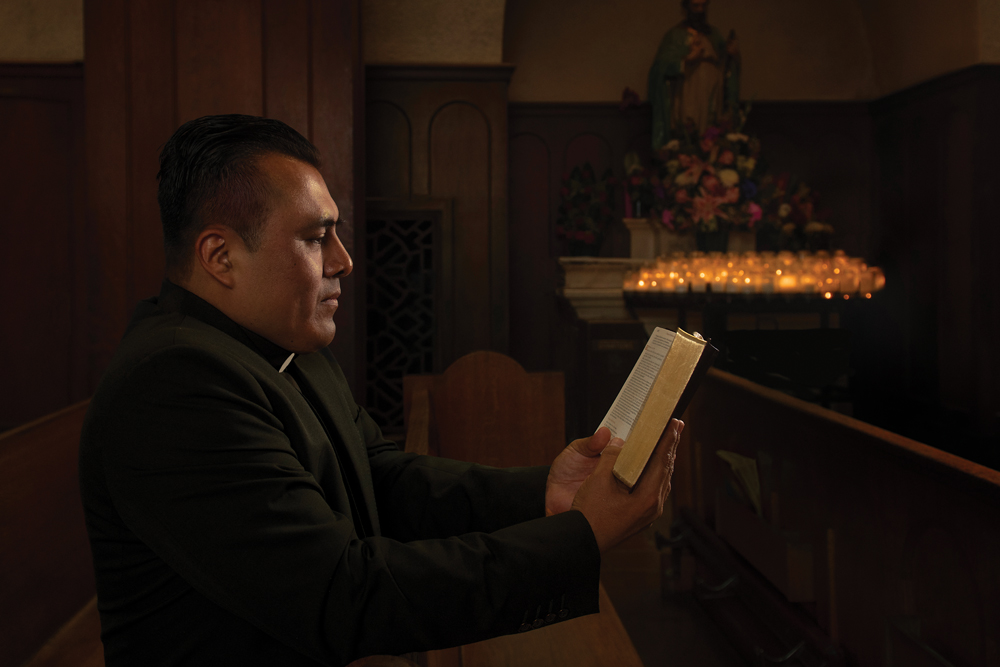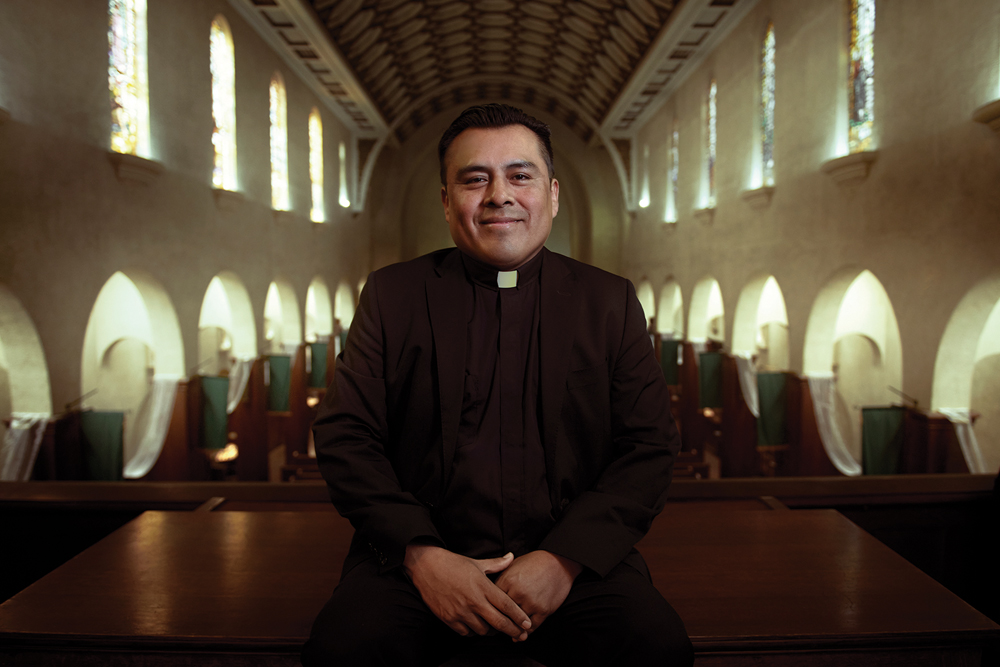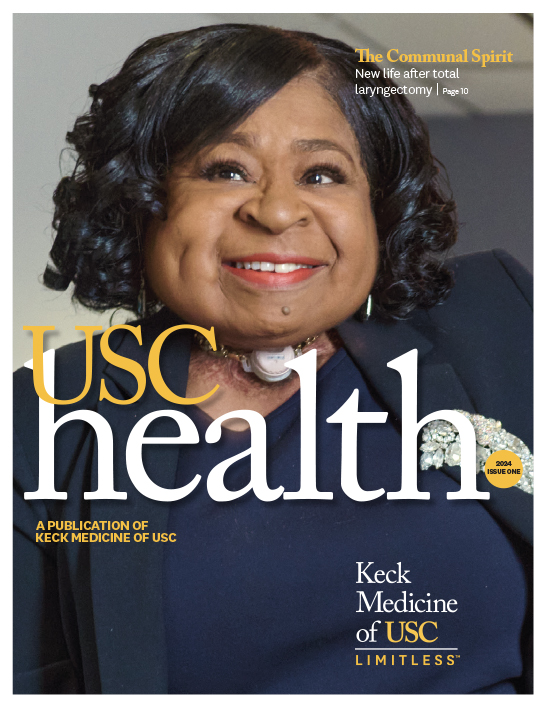
With the help of Keck Medicine of USC’s Jorge Nieva, MD, a young priest faces a lung cancer diagnosis with strength and grace.
As a young man, the Rev. Abdias González González had dreams of traveling the world and serving others through his work as a Roman Catholic priest.
When he was offered the opportunity to live in Spain, he jumped at the chance to experience something different from his time in the seminary in Mexico.
“I spent five years near Toledo in Spain. Seeing the poverty throughout Europe motivated me to be useful and made me want to help people,” the priest, who goes by Father Abdias, says, speaking in his native Spanish.
During his time in Spain, he studied theology, traveled to various religious sites and embraced the local culture — including the afternoon siesta.
Once he returned to Mexico and was ordained as a priest, he kept the afternoon naptime routine, even after he was assigned to a church near downtown Los Angeles.
Little did he know, his need for daily rest likely was the first sign of a tumor in his lung.
Surprise lung cancer diagnosis
Father Abdias received an initial diagnosis of widespread lung cancer. But a church leader prompted him to seek a second opinion.
He went to the USC Norris Comprehensive Cancer Center and saw oncologist Jorge Nieva, MD.
“I had never smoked and I was 38 years old at the time,” says Father Abdias.

“Dr. Nieva explained my cancer wasn’t as advanced as I’d been told, and that I had more possibilities for treatment,” Father Abdias remembers.
The diagnosis of Stage IIIC non-small cell lung cancer meant the young priest had a tumor about the size of an orange in his lung. Dr. Nieva explained he could be treated with a six-week course of chemotherapy and radiation.
Genetic screening for lung cancer informs treatment
A study of Father Abdias’ cancer cells also showed he was ROS1 positive. This genetic alteration is found in only 2% of people diagnosed with non-small cell lung cancers. It is associated with young non-smokers.
USC Norris was an early adopter of genetic cancer screening, Nieva says. Though giving patients “a good molecular interrogation of their tumor” is becoming more accepted, it is not widespread.
“Having the ability to do more molecular analysis of tumors has really revolutionized care for patients. In Father Abdias’ case, we were able to identify the reason his cells were abnormal,” Dr. Nieva says.
“Molecular analysis of tumors has really revolutionized care for patients.”
Jorge Nieva, MD, USC Norris Comprehensive Cancer Center
“This meant he could be treated with an oral medication for his lung cancer,” says Dr. Nieva, who is also an associate professor of clinical medicine at the Keck School of Medicine of USC.
The shorter treatment time, as well as the warm care he felt from his care team, pushed Father Abdias to put his trust in the physicians at USC Norris so he could get back to serving his local parish.
“When I got my first diagnosis, I was very depressed because I thought death was near. But after I talked to Dr. Nieva and got the second opinion, the way he explained it helped me face the diagnosis with more strength and less fear,” Father Abdias says.
Topics


